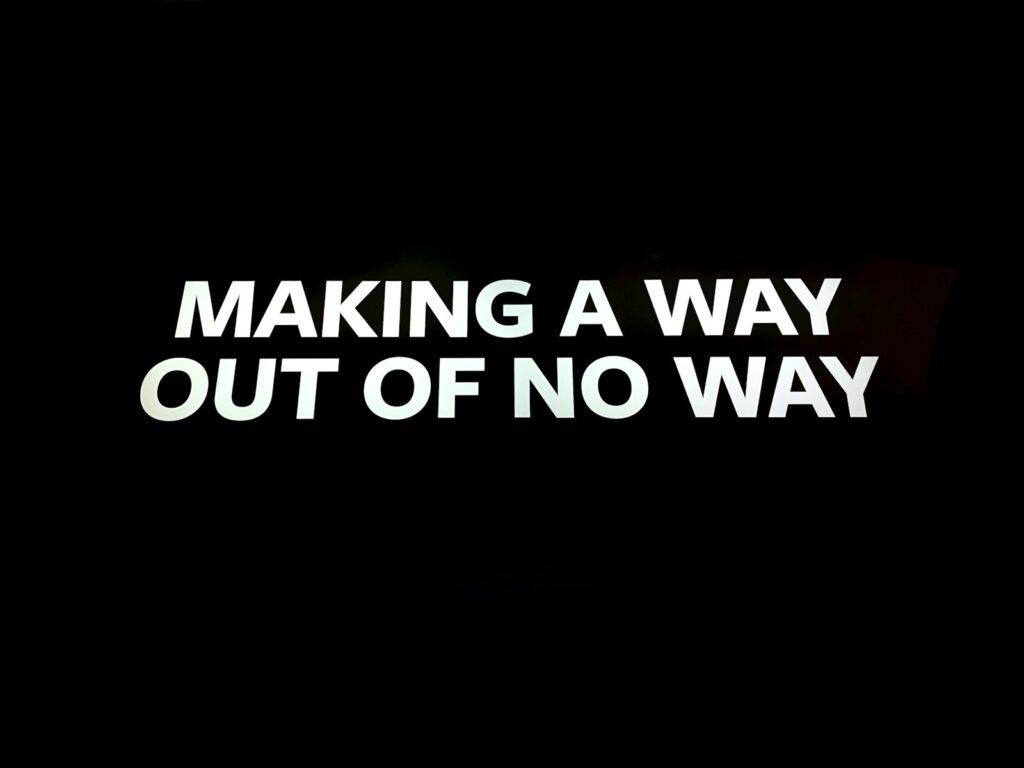When Dr. Lucy Hone took the stage to give her speech, no one could have anticipated the heartbreaking story she was about to share. A resilience researcher and expert, her academic life was devoted to studying strategies for coping with adversity and emerging stronger on the other side. Little did she know that her own resilience would soon be put to the ultimate test.

On what seemed like an ordinary weekend getaway, Lucy’s world shattered into pieces. Her 12-year-old daughter Abby, together with Abby’s best friend Ella and their dear friend Sally, were killed instantly in a devastating car accident. In the blink of an eye, Lucy’s identity shifted from resilience expert to grieving mother trying to “wrap my head around unthinkable news.”

The advice and resources provided offered little solace as she was informed that her family was now at high risk for mental illness, divorce, and estrangement. Well-meaning pamphlets laid out the “five stages of grief” as if it were a linear process to simply trudge through. Experts told her to prepare to “write off the next five years” to the all-consuming anguish of mourning a child.
But Lucy refused to resign herself to a path of hopelessness and victimhood. Despite having no assurance that her approach would work, she decided to turn herself into a test case for the very resilience strategies that had been the focus of her life’s work. Could the scientific research on overcoming adversity truly be applied to the “monumental mountain” of loss she now faced?
With raw vulnerability, Lucy shared three key resilience strategies that became her lifelines during the darkest days of grief:
- Accept that suffering is part of life. While not welcoming hardship, resilient people understand that no one is immune from experiencing profound pain and difficulties. As Lucy expressed, “Never once did I find myself thinking ‘why me?’ In fact, I remember thinking ‘why not me?'” This tempering of expectations liberates one from feeling discriminated against by tragedy.
- Intentionally focus your attention. Our brains are wired to perceive threats and negativity with laser focus, while positive experiences tend to slip by unnoticed. Resilient people make a concerted, ongoing effort to “hunt the good stuff” and find things to be grateful for, even amidst immense sorrow. As Lucy did, create reminders to accept the good alongside the heartbreaking realities.
- Ask yourself: Is what I’m doing helping or harming me? This deceptively simple question became Lucy’s compass for choosing which thought patterns, behaviors, and coping outlets were beneficial versus detrimental. It empowered her to stay away from the trial, put away triggering photos when needed, and treat herself with kindness. Applying this question allows you to regain control over your healing process.
Reflecting five years after Abby’s death, Lucy admits these strategies did not remove all the pain and longing of her loss. However, she insists they showed her “that it is possible to live and grieve at the same time.” More than just surviving, resilience thinking allowed her to be an active participant in her grieving journey rather than merely enduring it.
Lucy’s story is a powerful reminder that resilience is not a fixed trait possessed by some and lacking in others. It consists of simple yet profound thought processes that can be learned and applied by anyone courageous enough to choose them, even when facing life’s most brutal blows. As she summarizes:
“I think we all have moments in life where our life path splits and the journey we thought we were going down veers off to some terrible direction that we never anticipated and certainly didn’t want. If you ever find yourselves in a situation where you think ‘There’s no way I’m coming back from this,’ I urge you to lean into these strategies and think again.”
Resilience does not make suffering disappear. But it can help us navigate even our darkest hours in a life-giving way, experiencing both the anguish and the hard-won gratitude that so often co-exist. While the pain of Lucy’s loss will forever leave an indelible mark, her ability to grieve with resilience is an inspiring testament to the human capacity for transformation amidst tragedy.